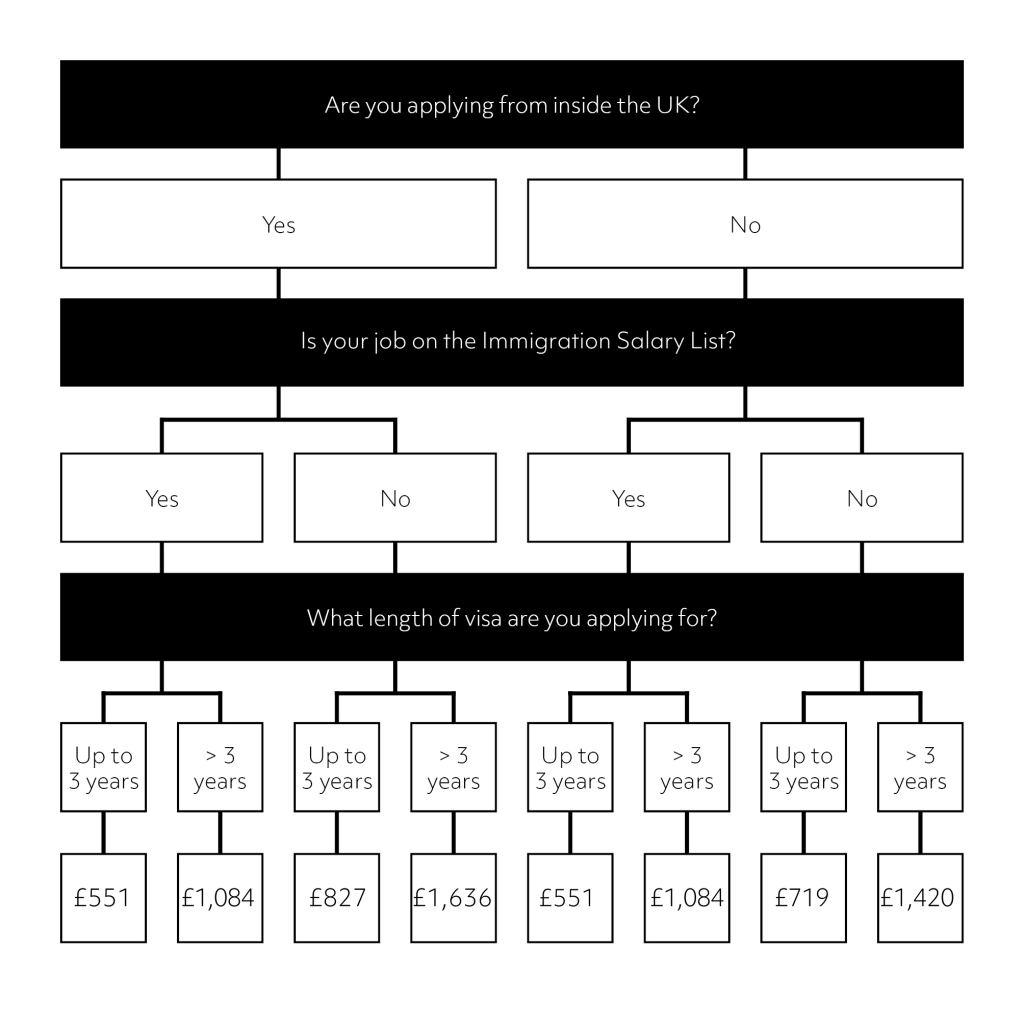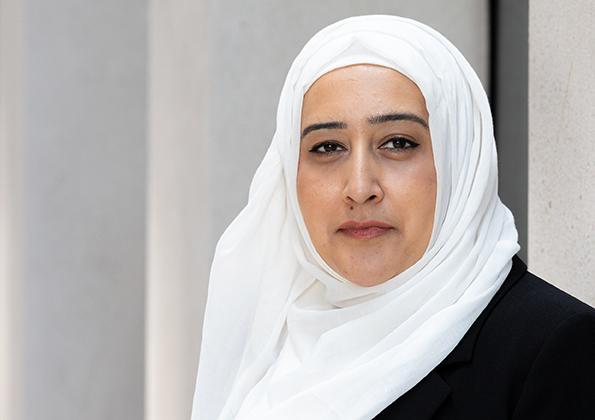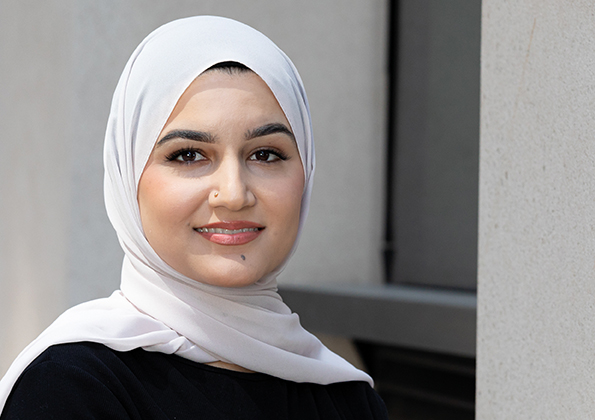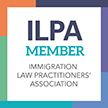Skilled Worker visas (for individuals)
Scroll to:
Skilled Worker visa – overview
The Skilled Worker visa has replaced the Tier 2 General visa. It is for those who wish to come to the UK for the purpose of working in a skilled job they have been offered and sponsored for by a UK based employer.
Before you can apply for this visa you need to have a suitable job offer and the employer needs to be a registered sponsor in the UK.
A list of all registered sponsors can be found here.
Yes. You must have had an offer of employment from a registered sponsor in the UK. This job must meet the minimum skill level and minimum salary (see below).
Without a sponsor licence your employer cannot sponsor you for a Skilled Worker visa. You should either look for a new role with a registered sponsor or speak to your employer about applying for a sponsor licence.
Yes, you can bring certain family members known as “dependants” with you. These are your:
- spouse or partner
- children under the age of 18
- children over 18 who are already in the UK as your dependant.
If you are already in the UK with your dependants and you switch to the Skilled Worker visa, they will be able to remain with you. Whether or not they need to apply for new visas will depend on the circumstances and it is recommended that you contact us to discuss this further.
There is no limit on the duration for which you can hold a Skilled Worker visa. Subject to meeting the eligibility criteria, you can apply for Indefinite Leave to Remain after 5 years.
Yes. The criteria that you will need to meet to extend your visa will depend on whether you have a Skilled Worker visa or a Tier 2 General visa.
You can apply for your visa in the first instance for up to 5 years and can extend this as many times as you like, as long as you still meet the eligibility requirements. If you apply for a shorter visa initially, you can apply to extend this subsequently.
Yes, you can apply for Indefinite Leave to Remain (ILR) in the UK once you have held this visa for 5 years and can use time spent on the Tier 2 General visa immediately prior to the Skilled Worker visa towards this 5 years.
There are other eligibility requirements for ILR which you should be mindful of. Please contact us to discuss these to ensure that you do not fall foul of these whilst holding your visa.
The Skilled Worker visa only allows you to work in your sponsored role for your sponsor/employer. If you wish to change employers, you can do so if you receive a new qualifying job offer and Certificate of Sponsorship from another employer with a sponsor licence. You will then have to make a new visa application.
Yes however you may need to be issued with a new CoS and make a new visa application.
If your visa has been curtailed you will receive a letter from UKVI informing you of this and giving you a period of time within which you are required to leave the UK or alternatively, submit a new valid visa application. To ensure that you are taking the correct steps within the correct time frame, we strongly recommend that you contact us to discuss your visa curtailment.
Skilled Worker visa - eligibility
The RLMT was a headache for sponsors and required the role to be advertised in a prescriptive way before you could assign a CoS. The RLMT has been abolished for the Skilled Worker visa.
Each role that can be sponsored for a Skilled Worker visa has a minimum salary set by UKVI.
The minimum salary rate from 4 April 2024 is the higher of £38,700pa, £15.88ph or, the going rate for that occupation.
There are situations where you can be paid a lower salary than this, depending on the role you are being sponsored for and your individual circumstances.
For help identifying the minimum salary you need to earn, please contact us.
Yes, the role that you will be sponsored to do must be at RQF Level 3 or above, which is equivalent to A Level.
The Immigration Salary List, previously known as the Shortage Occupation List, is a list of all roles in the UK which UKVI believes there are not enough settled workers to fill. Occupations on the ISL benefit from a lower general salary threshold The current Immigration Salary List can be found here.
Skilled Worker visa - application process
You will be required to complete an online application form, upload copies of your supporting documents and then book and attend an in-person appointment to give your biometric details (fingerprints and photograph). It usually costs £19.20 to give your biometric information (or reuse it if you’ve provided it before) if you apply from within the UK. If you apply from outside the UK the cost is included in your application fee.
The fee depends on the role you will hold, where you are applying from and the duration of your visa.

You will also have to pay the Immigration Health Surcharge for the duration of your visa and may have to pay a fee of £19.20 to enrol your biometric information.
If you are a citizen of Turkey or Macedonia, the fee payable will be slightly lower. Please contact us for further information.
The IHS refund scheme has been launched for those working in the NHS or social care sector.
Workers applying for the Health and Care visa are exempt from paying the IHS and those who have previously paid it upfront may be able to claim this back every 6 months.
To be eligible for a refund, you must:
- hold a visa that gives you a generic right to work e.g. Tier 5 Youth Mobility Visa, PBS Dependant visa, spousal visa, Student visa (with the right to work up to 20 hours per week during term time);
- have paid the IHS at the time of applying for your visa;
- have worked continuously for at least 6 months commencing on or after 31 March 2020;
- have worked for an average of at least 16 hours per week over the full six month period;
- have worked in an eligible job which means that you must be:
- providing a service which is related to the delivery of health or social care; and
- be employed or engaged by either:
- a recognised health or care provider (e.g. NHS trusts, national NHS bodies); or
- an employer which is registered with an appropriate health or social care services regulator to provide health or care services (e.g. care homes or independent sector healthcare providers registered with the CQC); or
- an employer delivering services that directly support health and social care services (e.g. facilities management services within a hospital, as long as this work is undertaken within a health and care setting).
If the main applicant meets the eligibility criteria, they can also apply for a refund for their dependants.
The supporting documents are specific to each applicant but generally the following documents are likely to apply:
| Requirement | Likely documentation |
|---|---|
| ID | Passport and current BRP (if you have one) |
| English language | IELTS pass certificate, GCSE/A Level or Scottish Highers (if obtained at school in the UK), University degree and UK NARIC certificate/Ecctis certificate |
| Maintenance funds | Bank statements showing at least £1,270 held for the 28 days before the application unless the sponsor certifies maintenance |
| Criminal record certificate (for some roles only) | Criminal record certificate from any country (excluding the UK) you have lived in cumulatively or continuously for 12 months or more in the last 10 years whilst aged 18 or over |
| TB test | Clear TB test if you are from a country requiring a TB test |
No – unless you are already in the UK with any of these visas:
- Visitor; or
- Short-term student; or
- Parent of a Child Student; or
- Seasonal Worker; or
- Domestic Worker in a Private Household; or
- Outside the Immigration Rules.
If you fall within the above categories, you must make your visa application from overseas.
Yes, so long as:
- you have obtained an eligible qualification
- you have completed your course of study or are due to complete it within 3 months, or
- you have completed 12 months of a PhD.
Health and Care Worker visa
From 11 March 2024, Care workers and Senior Care workers are no longer permitted to bring dependants with them to the United Kingdom as part of their visa.
However, Care workers and Senior care workers already in the UK will be able to remain with their dependants.
The Health and Care Worker visa was introduced in August 2020 and is a sub-category of the Skilled Worker visa which applies to global health professionals with a job offer from the NHS, an organisation providing medical services for the NHS or an organisation providing adult social care which has a sponsor licence in one of the “listed professions,” namely:
- 1181: health services and public health managers and directors
- 1242: residential, day and domiciliary care managers and proprietors
- 2112: biological scientists and biochemists
- 2113: physical scientists
- 2211: medical practitioners
- 2212: psychologists
- 2213: pharmacists
- 2214: ophthalmic opticians
- 2215: dental practitioners
- 2217: medical radiographers
- 2218: podiatrists
- 2219: health professionals that are ‘not elsewhere classified’, such as audiologists and occupational health advisers
- 2221: physiotherapists
- 2222: occupational therapists
- 2223: speech and language therapists
- 2229: therapy professionals that are ‘not elsewhere classified’, such as osteopaths and psychotherapists
- 2231: nurses
- 2232: midwives
- 2442: social workers
- 3111: laboratory technicians
- 3213: paramedics
- 3216: dispensing opticians
- 3217: pharmaceutical technicians
- 3218: medical and dental technicians
- 3219: health associate professionals not elsewhere classified
- 6141: nursing auxiliaries and assistants
- 6143: dental nurses
- 6145: care workers and home carers (From 15th February 2022)
- 6146: senior care workers
Applicants must also meet the other Skilled Worker visa (previously the Tier 2 General visa) requirements in that they must have a valid Certificate of Sponsorship, meet the appropriate skill and salary level for their role, be able to prove their English language ability, have the minimum personal savings, have a valid TB test (if required) and criminal record certificate.
You must also be sponsored by a qualifying employer in a qualifying role (see above).
The application fee for the Health and Care visa is cheaper than the Skilled Worker visa at £284 per person for visas for up to 3 years and £551 per person for more than 3 years. In addition, applicants do not have to pay the Immigration Health Surcharge (currently £624 per year). An added benefit is that dependants are also exempt from the Immigration Health Surcharge.
Further, the processing times for Health and Care Worker visa applications made inside the UK are faster than for the standard Skilled Worker visa at three weeks as opposed to eight weeks.
In order to qualify for the visa, applicants must be taking up a job in an eligible role. The visa is for those health professional roles which the Government assesses as being skilled, such as doctors, nurses, dentists, physiotherapists and paramedics. A full list of the eligible roles are set out above and can be accessed here.
As stated above, in addition to holding an eligible job, applicants must be taking up a job with the NHS, an NHS provider or one of the listed organisations in the guidance. Listed organisations include a Local Authority or Clinical Commissioning Group as well as organisations registered with the Care Quality Commission where the migrant is employed to provide (or to support the provision of) regulated activities as prescribed in Schedule 1 to the Health and Social Care Act 2008 (Regulated Activities) Regulations 2014.
Previously only Senior Care Assistant roles were suitable for sponsorship and the role of a Care Assistant was unsuitable for the Skilled Worker / Health and Care Worker Visa however this has changed temporarily.
From 15 February 2022 the following roles are included on the Shortage Occupation List and so are suitable for sponsorship for the Health and Care Worker visa:
- Care Assistant
- Care Worker
- Carer
- Home Care Assistant
- Home Carer and
- Support Worker (Nursing Home)
It is the greater of:
- £23,200 per annum; or
- £11.90 per hour
Applicants for these roles will only require a minimum annual salary of £23200, as opposed to the standard minimum annual salary of £38,700. This may encourage more businesses to recruit sponsored workers into these roles.
In addition, as these roles qualify for the Health and Care Worker visa, applicants and their dependants will benefit from the usual fast-tracked processing (with most applications processed within 3 weeks), as well as a 50% visa fee reduction and exemption from the Immigration Health Surcharge.
Applicants will need to apply using the online Skilled Worker visa application form but will need to tick a box to confirm that they are applying for the Health and Care Worker visa.
Sponsors employing migrants under this route will need to explain in the Certificate of Sponsorship how the employee is eligible. For example, where a sponsor provides services commissioned by the NHS, proof of this arrangement should be provided to evidence that the Health and Care Worker visa is applicable.
Services and pricing
We provide a range of services to Skilled Worker visa applicants including assistance with their initial application and switching to this visa category. This includes:
- initial correspondence with you regarding eligibility
- review of and advice to you on the draft completed application form
- advice to you on the application process and queries
- advice on which supporting documents to provide with the application
- assist with questions about the process or correspondence from the Home Office.
Fee estimate*: £1,250 – £2,500
*: Our fees are calculated based on the number of hours it will take us to carry out this work. The exact number of hours it will take depends on the circumstances in your case, such as:
- the volume of supporting documents and evidence that we need to consider
- the quality of the draft supporting documents provided by you, the amount of time required to amend these and the number of amended drafts required
- whether face to face meetings or video calls with you are required and the volume of calls and queries from you
- the urgency of your application
- whether you have an adverse immigration or criminal history
- the need to obtain documentation from or liaise with third parties such as accountants or translation companies
- whether you are applying alone or with dependants
- whether you require advice on your current immigration status.
Fees are excluding VAT at the rate of 20%. VAT may or may not be payable on the above fee estimate as this is dependent on the country in which you reside and you will be advised of this before work on your application commences. Disbursements are costs related to your matter that are payable to third parties, such as visa fees payable to the Home Office and document translation fees. These are not included in the above estimates.
Disclaimer
Given the fast pace of change, we would stress that this information is designed to be informative, not advisory and represents our understanding of English law and practice as at the date indicated. We would always recommend that you should seek specific guidance on any particular legal issue.
As a hub, we have included references to articles and explainers from third parties. We have no control over and are not responsible for the content, use by you or availability of those third party websites, for any products or services you buy through those sites or for the treatment of any personal information you provide to the third party.






